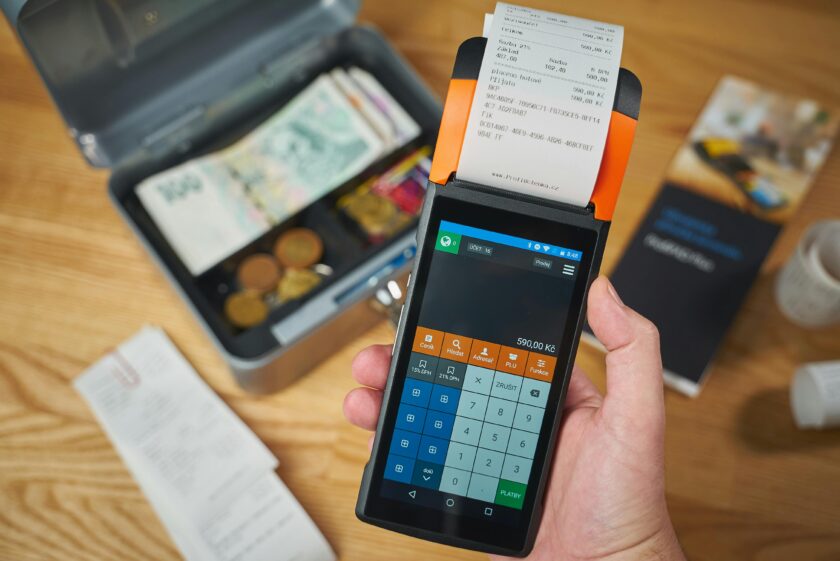
How Retailers are Using AI to Become More Competitive
In today’s ultra-competitive retail landscape, artificial intelligence (AI) has shifted from a futuristic concept to an operational must-have. According to the 2025 State of AI in Retail and CPG Trends report, 9 out of 10 retailers are already using or actively assessing AI technologies. The message is clear: AI isn’t optional—it’s essential.
1. Personalized Shopping Experiences
Modern AI tools are transforming customer engagement. Using real-time data extracted from browsing history, demographics, and purchase behavior, retailers can personalize shopping journeys, online and in-store.
- 64% of retailers are using AI for hyper-personalized product recommendations.
- Brands like Sephora and Nordstrom have seen 25–30% higher conversion rates from AI-driven personalization.
- Google’s latest AI upgrades allow shoppers to try makeup and clothing virtually, enhancing digital confidence.
With the right implementation roadmap, retailers can unlock the full potential of AI-powered personalization.
That’s where 360 Retail Management helps businesses identify opportunities to integrate AI with existing marketing and customer service strategies.
2. Smarter Inventory Management
- Inventory optimization remains one of the most impactful AI use cases.
- Target reported significant cost savings and a 20% boost in product availability through AI adoption.
- 72% of physical retailers use AI to manage stock levels and forecasting.
- AI enables better demand prediction, automatic reordering, and improved warehouse logistics.
3. Dynamic Pricing for Real-Time Competitiveness
In a world where prices can make or break a sale, AI allows retailers to shift from static pricing to real-time, dynamic pricing strategies. By analyzing variables like customer demand, competitor pricing, current inventory levels, and market trends, AI-driven pricing engines help businesses fine-tune pricing decisions across thousands of SKUs daily.
Retailers can now:
- Launch flash sales based on live inventory data
- Adjust prices automatically during peak and off-peak hours
- Align pricing strategies across channels in real time
This flexibility helps capture more sales and improves profit margins by 2–5%, a substantial edge in the highly competitive retail space. As AI pricing tools mature, they’re also learning to prioritize long-term customer value, not just immediate conversions.
At 360 Retail Management, our experts will collaborate with your team to analyze the industry scope and competitor pricing to provide you with the critical edge.
4. AI-Powered Customer Service

Today’s consumers expect fast, personalized, 24/7 support, and AI delivers precisely that. AI-powered customer service tools like chatbots, voice assistants, and automated email responders are redefining what’s possible in both digital and in-store support environments.
Leading retailers now use AI agents to:
- Provide instant responses to FAQs and order inquiries
- Offer personalized product recommendations
- Process returns and exchanges efficiently
- Handle service in multiple languages
What sets the best implementation models apart is their ability to blend automation with human support. For example, AI handles 70% of inquiries at companies like Walmart and Best Buy, freeing up human agents to focus on complex or emotional interactions that require a personal touch.
5. AI for Marketing Content & Campaigns
Marketing in retail has shifted from guesswork to precision, and AI is the engine behind it. Generative AI tools can now create marketing copy, images, and videos tailored to customer segments, campaign goals, and even individual shopper preferences.
Retailers are using AI to:
- Write product descriptions at scale
- Create personalized emails and SMS campaigns
- Generate social media ads that respond to audience engagement in real time
What makes this so powerful is the ability to analyze engagement metrics and customer behavior instantly, allowing for dynamic campaign optimization. Brands adopting these tools are reporting higher open rates, more click-throughs, and better overall ROI on their marketing spend.
6. AI in the Supply Chain
With global disruptions and complex logistics, AI is becoming essential to smarter supply chain management.
- 82% of supply chain leaders plan to increase AI investment, according to Gartner research.
Use cases include:
- Demand forecasting
- Route optimization
- Inventory risk management
- Alternative sourcing
Home Depot, for example, cut delivery times by 20% using AI.
7. In-store AI Innovation
AI isn’t just for e-commerce; brick-and-mortar stores are also getting a high-tech upgrade.
- Smart shelves and computer vision for real-time inventory tracking
- AI-powered store analytics to understand foot traffic and shopper behavior
- Automated checkouts and facial recognition (with privacy protections) to personalize service
8. AI Delivers Real Results
The financial impact of AI is undeniable. Retail AI Impact Study underscores the importance of this impact:
- 87% of retailers report increased annual revenue
- 25% report revenue boosts over 20%
- 94% saw reduced operating costs
- 97% plan to increase AI budgets in the next year
These numbers reinforce AI’s role as a long-term strategic asset, not a short-term trend.
9. Addressing AI Challenges
Despite AI’s benefits, challenges remain, according to the Retail AI Adoption Survey:
- 33% need more transparent, explainable AI tools
- 31% struggle with recruiting AI talent
- 28% face difficulties measuring ROI
- 60% cite data privacy as a top concern with generative AI
Retailers navigating these challenges often benefit from working with consulting partners who understand both the technology and the realities of retail operations.
Making AI Work for Your Retail Business
AI’s potential is massive, but it requires the right systems, strategy, and support. With 360 Retail Management’s strategic retail consulting, retailers can simplify and scale their AI journey through:
- Inventory planning and automation strategies
- Seamless returns and refund workflow design
- Unified systems integration across POS, eCommerce, and customer insights
- Tailored AI adoption roadmaps for unique store operations
Whether you’re a boutique or multi-location retailer, the right consulting approach can ensure your AI initiatives deliver measurable ROI while enhancing the customer experience.



